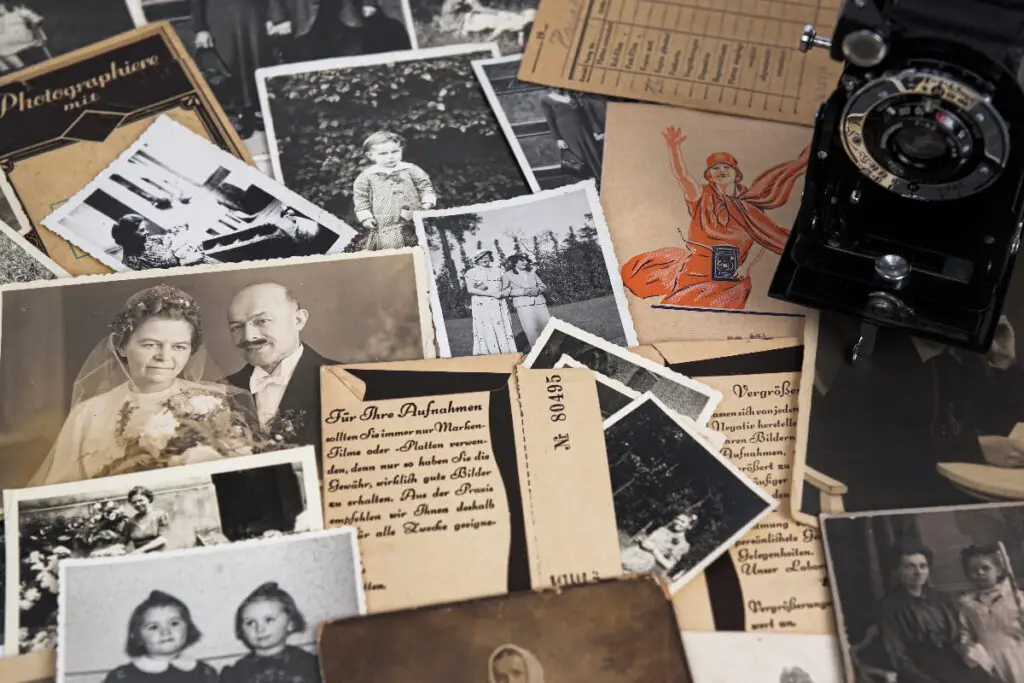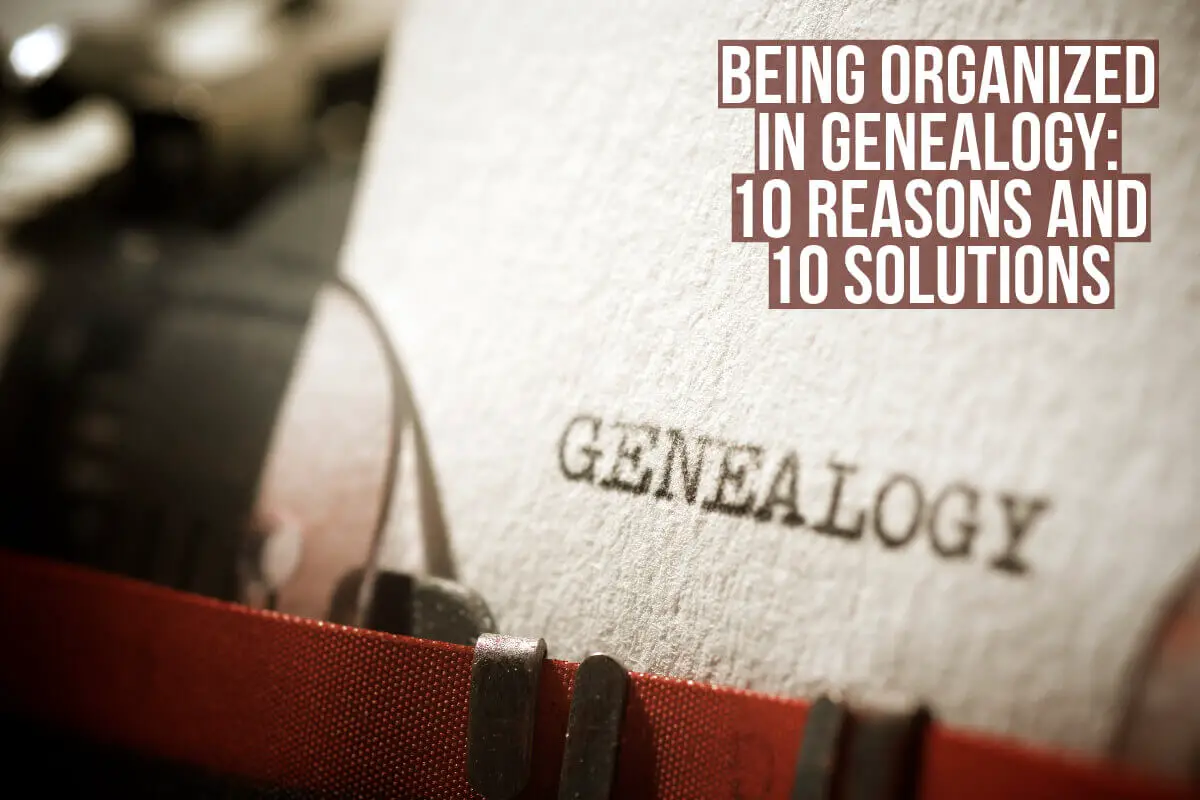Embarking on a journey into genealogy and family history research comes with challenges and joys. One of the most crucial skills to master early on is organization.
Losing valuable data and time is accessible without a system to manage the information you’ll gather. Thankfully, digital advancements have made it far simpler to stay organized compared to the past. With abundant online platforms and digitization options, maintaining an easily accessible archive has never been more feasible. Join us as we delve into the importance of staying organized in your genealogical pursuits and offer practical solutions to help you achieve this.
Table of Contents
- Why Being Organized Is Crucial In Genealogy Research: 10 Reasons And 10 Solutions
- 10 Reasons Why Organization Is Important In Genealogy Research
- 10 Ways To Get Organized In Genealogy Research
- Related Questions
Why Being Organized Is Crucial In Genealogy Research: 10 Reasons And 10 Solutions
Genealogy research is a quest to discover who you are by learning who you came from. This enriching journey can be as fascinating as it is complex. Like any academic researcher, a genealogist gathers and analyzes many data points. These include names, birth and death dates, marriage records, photos, anecdotes, etc. However, the efficacy of this research hinges on one vital element—organization. Let’s explore why organization is valuable and imperative and how to achieve it.
10 Reasons Why Organization Is Important In Genealogy Research
There are multiple compelling reasons to prioritize organization when embarking on genealogy research. Keeping your data and findings in a systematic order can significantly influence the quality and efficiency of your research journey.

Let’s delve into 10 crucial reasons why maintaining an organized approach is indispensable in genealogical endeavors.
1. Saves Time
An organized approach helps you quickly locate information when needed, saving you from rummaging through a maze of files and notes.
2. Avoids Duplication
Being organized prevents you from repeatedly chasing the same information, ensuring your time is spent on discoveries.
3. Streamlines Analysis
A well-organized database helps you see patterns and connections more clearly, aiding in more robust analyses of family ties.
4. Enhances Accuracy
Good organization can be a bulwark against errors, enabling you to maintain accuracy by cross-referencing information efficiently.
5. Facilitates Collaboration
Sharing your data with relatives or other researchers who may provide additional insights is easier if your data is organized.
6. Prevents Loss Of Information
An organized system makes it less likely for vital details to be misplaced or forgotten, thereby preserving your hard work.
7. Increases Productivity
When you’re not spending hours looking for a particular document, you can focus on expanding your research further, thus boosting your overall productivity.
8. Eases Expansion
An organized framework allows for easy updating. As you discover more branches of your family tree, you can easily integrate the new data without getting overwhelmed.
9. Simplifies Backup
The organization aids in more straightforward and more effective backup strategies, ensuring that your hard-earned research is secure for future generations.
10. Enhances Emotional Satisfaction
Completing a well-organized genealogy project gives a unique sense of accomplishment. The process itself becomes more enjoyable when you are organized.
10 Ways To Get Organized In Genealogy Research
Having established the organization’s critical role in family history research, let’s focus on 10 practical methods to keep your records in order and streamline your genealogical investigations.

1. Digitize Records
Begin by converting all your physical documents, photos, and notes into digital files. This not only acts as a backup but also facilitates easier searching.
2. Consistent Naming Conventions
Whether it’s file names or tags, be consistent. Consistency aids in quicker search and retrieval.
3. Use Genealogy Software
Platforms like Ancestry.com or FamilySearch.org can serve as your digital workspace, offering various tools to help keep your information categorized and easily retrievable.
4. Categorize Information
Divide your research into direct lineage, extended relatives, historical context, geographical data, etc.
5. Maintain A Research Log
Please keep track of all the sources you consult and the information they yield. A research log helps you avoid redundant efforts.
6. Create A Timeline
Utilize a digital or physical timeline to plot essential events, making it easier to understand familial chronology.
7. Use Cloud Storage
Store your digitized data in a cloud service to ensure you can access it anywhere and share it easily with collaborators.
8. Physical Filing System
A physical filing system, preferably color-coded, can be invaluable for original documents. This is especially important for documents that are hard to replace, like historical letters or one-of-a-kind photos.
9. Regular Updates And Backups
Periodically, update all your records and back them up in multiple places, both digital and physical.
10. Set Research Goals
Before diving in, list what you aim to find out. These goals will guide your research efforts and make it easier to organize your work around specific objectives.
Researching one’s ancestry is deeply personal, yet it demands the rigor of academic research. It can be an emotional journey, where a simple birth certificate can evoke a wave of sentiment or a military record can bring immense pride.
It’s a quest that often turns into a lifelong project handed down through generations. As such, an organization’s value in genealogy research cannot be overstated.
By being organized, you make your present research endeavors more fruitful and lay down a structured path for future explorers in your family.
Whether through software, consistent naming conventions, or meticulously maintained logs and timelines, the organization is the backbone to hold your family history research together. Implement these organizational strategies, and the journey through your family’s past will be as fulfilling as the stories you uncover.
The Hummel Family is a website all about Family History research. We focus on Swedish, German, English, Scottish, and American Genealogy. We also discussed Asia and China, as we had ancestors who spent many years in China.
You are welcome to join us and become part of our community by signing up for our FREE newsletter, The Hummel Family; sign up by clicking here.
Check out our Youtube Channel, Family History Buzz, by clicking here.
Related Questions
Why Did Matthew Start His Gospel With The Ancestors Of Jesus?
Matthew started his gospel with the ancestors of Jesus as he wanted to show the Jews that the Messiah had come as had been prophesied. He also wanted to show Jesus fulfilled the prophecy that the Messiah was a son of David.
You can discover more by reading Why Did Matthew Start His Gospel With The Ancestors Of Jesus? by clicking here.
The First Book Of The Old Testament Is Genesis
Genesis remains an essential book in the Old Testament and Bible because it is where we discover the world’s creation and learn about Adam and Eve. We also find other great prophets such as Noah, Abraham, and Joseph. Anyone reading the Bible should start with the book of Genesis – the very first book of the Old Testament.
You can learn more by reading The First Book Of The Old Testament Is Genesis by clicking here.
